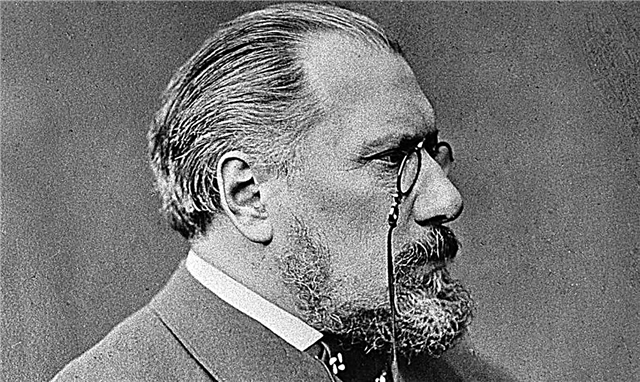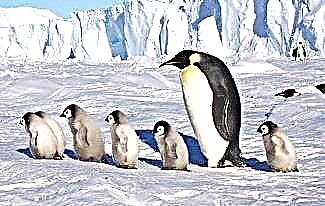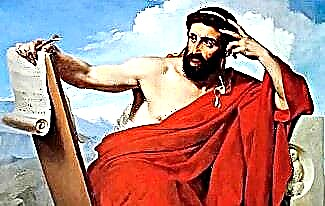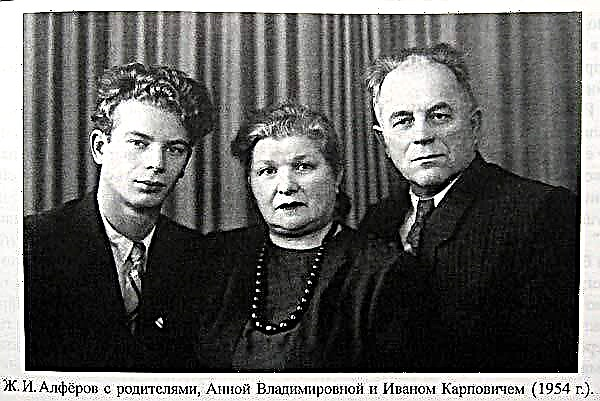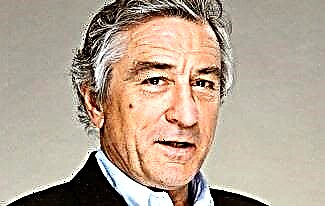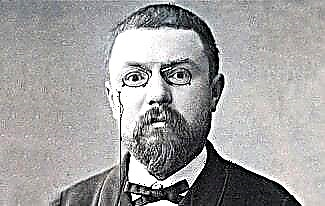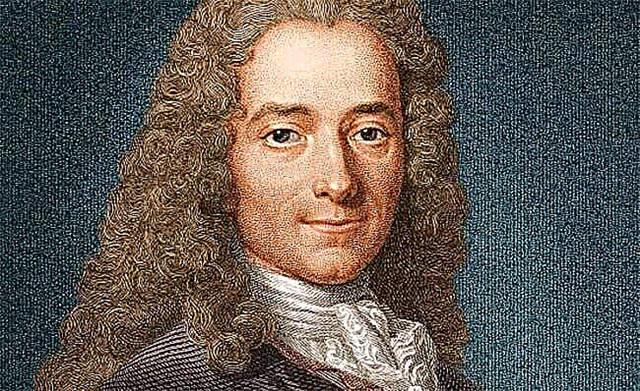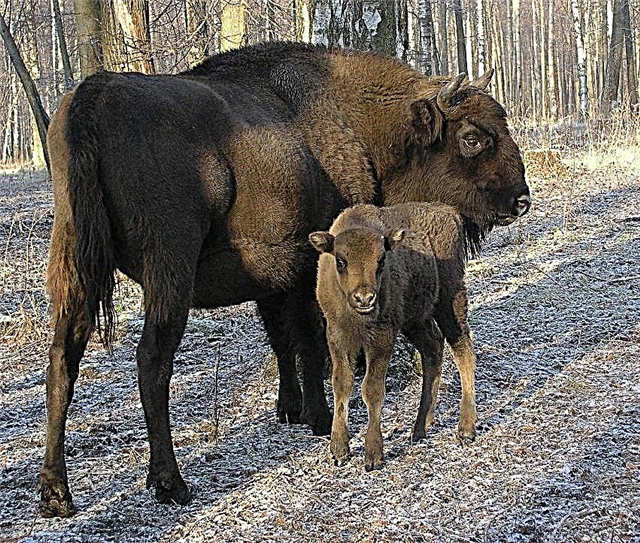Vasily Ivanovich Chuikov (1900-1982) - Soviet military leader and Marshal of the Soviet Union. Twice Hero of the Soviet Union.
Commander-in-Chief of the Land Forces of the USSR - Deputy Minister of Defense (1960-1964), Chief of the Civil Defense Forces (1961-1972).

There are many interesting facts in Chuikov's biography, which we will discuss in this article.
So, before you is a short biography of Vasily Chuikov.
Chuikov's biography
Vasily Chuikov was born on February 12 (January 31), 1900 in the village of Serebryanye Prudy (Tula province). His parents, Ivan Ionovich and Elizaveta Fedorovna, were ordinary peasants who raised 13 children.
Childhood and youth
When Vasily was 7 years old, his parents sent him to a parish school, where he studied for 4 years. After that, the teenager went to look for work in Petrograd. There he studied in a spur workshop and from time to time worked as a locksmith.
In 1917, Chuikov served as a cabin boy of the mine-mining group in Kronstadt. The following year, he took military training courses. In the summer of 1918, the young man took part in the suppression of the revolt of the Left SRs.
Vasily Chuikov first demonstrated his talent as a commander during the Civil War. In the shortest possible time, he managed to rise to the rank of commander of an infantry division. He took an active part in the battles, as a result of which he received 4 wounds.
When Chuikov was barely 22 years old, he was awarded 2 Orders of the Red Banner, as well as a personalized gold weapon and watch. By the time of his biography, Vasily was already a member of the Bolshevik party.
Military service
At the end of the Civil War, Chuikov graduated from the Military Academy. Frunze. In 1927 he was entrusted with the position of assistant to the department at the headquarters of the Moscow district. Then he was appointed military adviser in China.
Later, Vasily took courses at the Military Academy of Mechanization and Motorization. In the late 30s, he was the commander of a rifle corps, and then headed the Bobruisk army group in Belarus.

In the fall of 1939, the 4th Army was formed from Chuikov's group, which took part in the Polish campaign of the Red Army. The result of this campaign was the annexation of the eastern territories of Poland to the USSR.
At the end of the same year, he commanded the 9th Army, which fought in the Soviet-Finnish war. According to Vasily Ivanovich, this campaign was one of the most terrible and difficult in his military biography. Russian warriors did not ski well, while the Finns skied well and knew the area thoroughly.
From the end of 1940 to 1942 Chuikov was in China, as an adviser and commander of the Chinese army to Chiang Kai-shek. It is worth noting that in China there was essentially a civil war between the military formations of Chiang Kai-shek and Mao Zedong.
At the same time, the Chinese opposed the Japanese invaders who took control of Manchuria and other settlements. The Russian commander faced a difficult task - to keep a united front in the state in the war with Japan.
Despite internecine military conflicts, Vasily Chuikov managed to stabilize the situation and protect the Far Eastern borders of the USSR from Japan. After that, he applied for a return to Russia, which fought with all its might against the Nazis.
Soon, the Soviet leadership sent Chuikov to Stalingrad, which had to be defended at any cost. By that time, he was already in the rank of Lieutenant General, who had colossal military experience.
The army of Vasily Ivanovich became famous for the valiant 6-month defense of Stalingrad. His troops, inferior to the Nazis in the number of soldiers, tanks and aircraft, inflicted great damage on the enemy, destroying about 20,000 Nazis and many military equipment.
As you know, the Battle of Stalingrad is one of the largest in the history of mankind. According to average estimates, more than 1.1 Soviet soldiers and about 1.5 German soldiers died in it.
Thanks to non-standard thinking, dramatically changing tactics and rapid attacks, Chuikov was nicknamed - General Sturm. He was the author of the idea of the formation of assault detachments, which constantly changed their place of deployment and delivered surprise strikes on enemy positions. It is curious that the detachments consisted of snipers, engineers, miners, chemists and other "specialists".

For his heroism and other achievements, Chuikov was awarded the Order of Suvorov, 1st degree. In subsequent years, the general fought on various fronts, and also participated in the capture of Berlin.
An interesting fact is that at the Chuikov command post, the commander of the Berlin garrison, General Weidling, signed the surrender of his army and surrendered.
During the war years, Vasily Chuikov was twice awarded the honorary title of Hero of the Soviet Union. In the postwar years, he served in Germany in high positions. In 1955 he was awarded the title of Marshal of the Soviet Union.
In the 60s, the general became the Commander-in-Chief of the Ground Forces, the Deputy Minister of Defense of the USSR and the first head of the Civil Defense. At the age of 72, he submitted his resignation letter.
Personal life
The commander's wife was Valentina Petrovna, with whom he lived for a long 56 years. In this marriage, the couple had a boy Alexander and 2 girls - Ninel and Irina.
Death
Vasily Ivanovich Chuikov died on March 18, 1982 at the age of 82. On the eve of his death, he asked to be buried on the Mamayev Kurgan near the Motherland Monument. He wanted to lie with the soldiers of his army who died in Stalingrad.
Chuikov Photos










